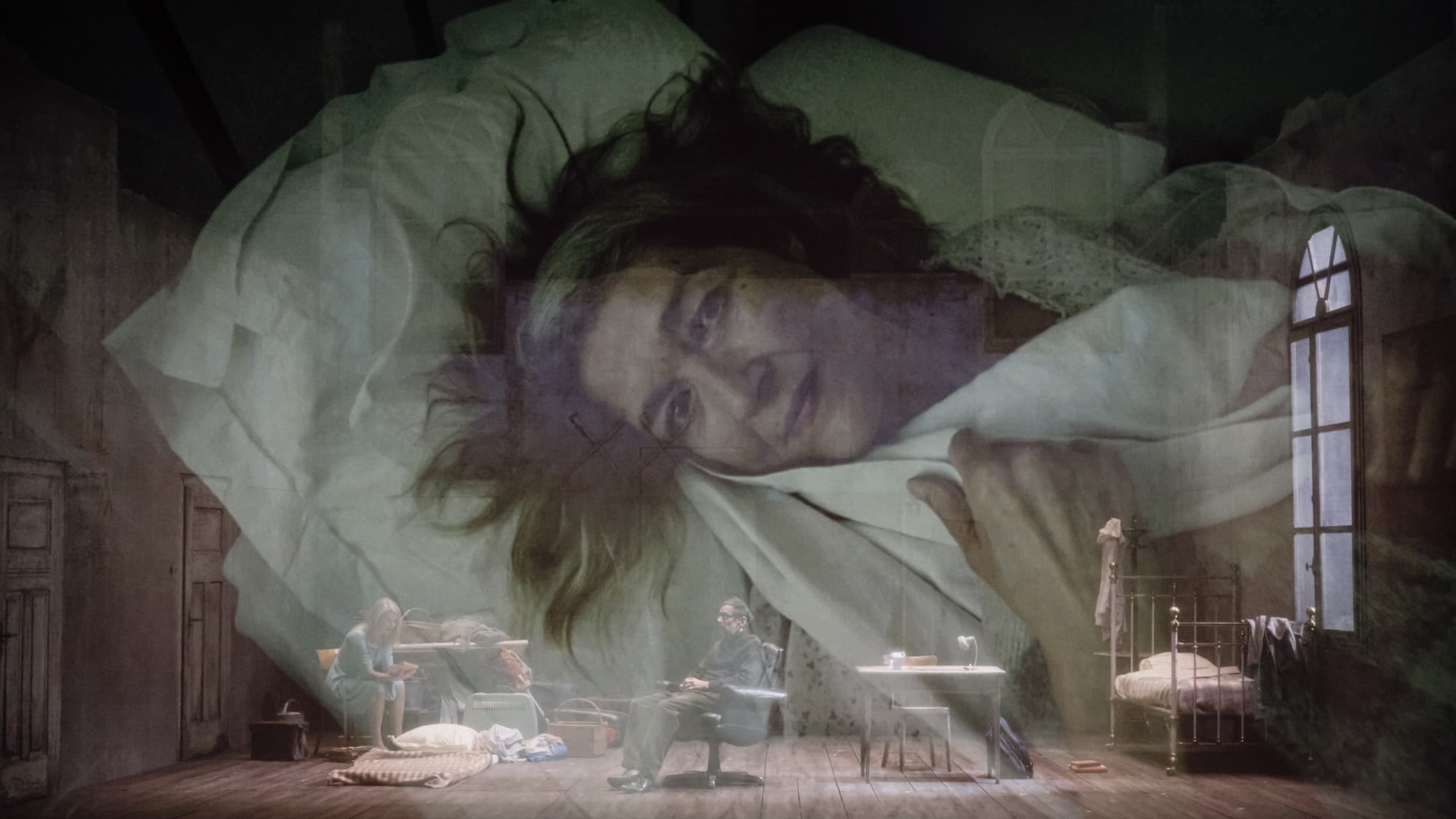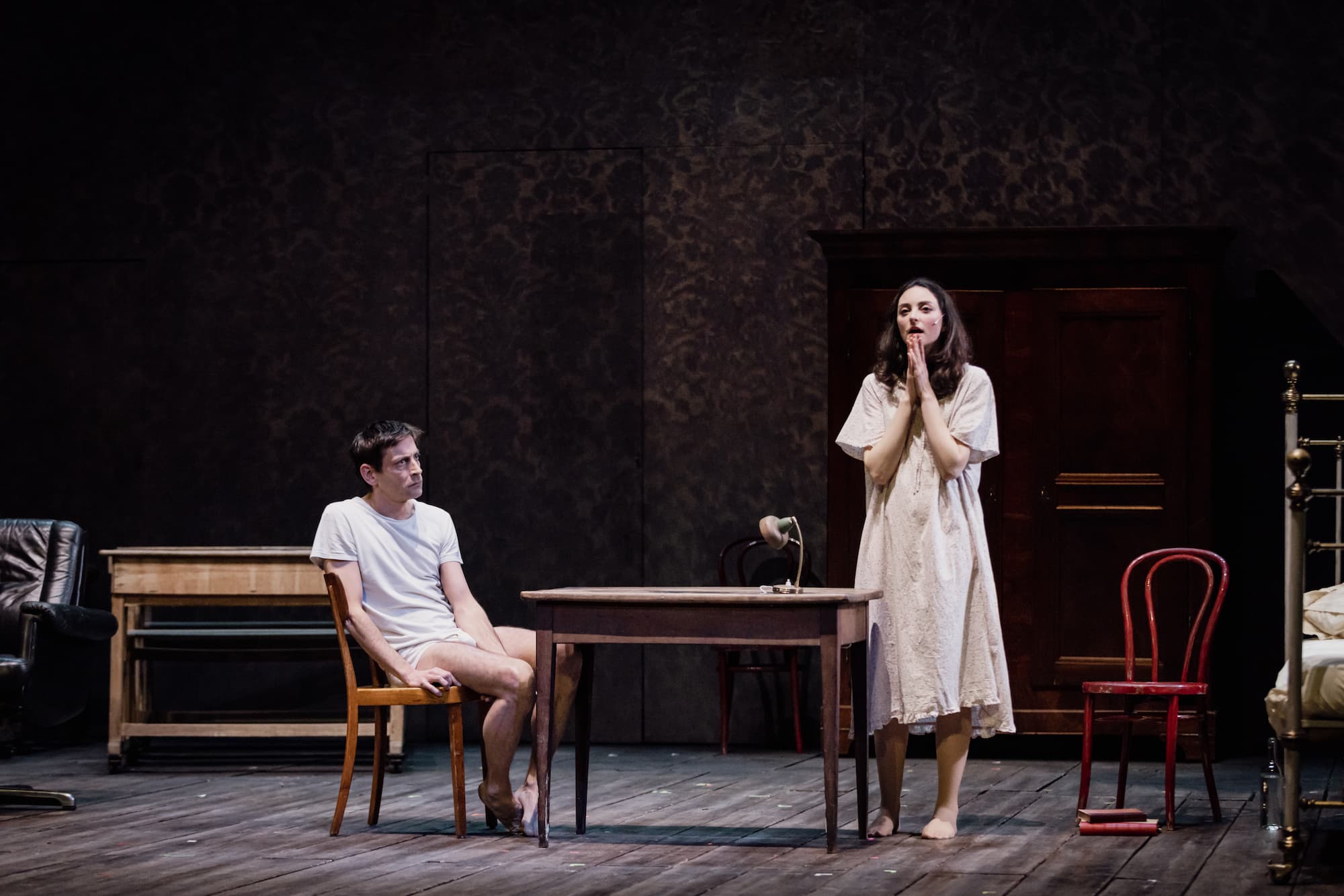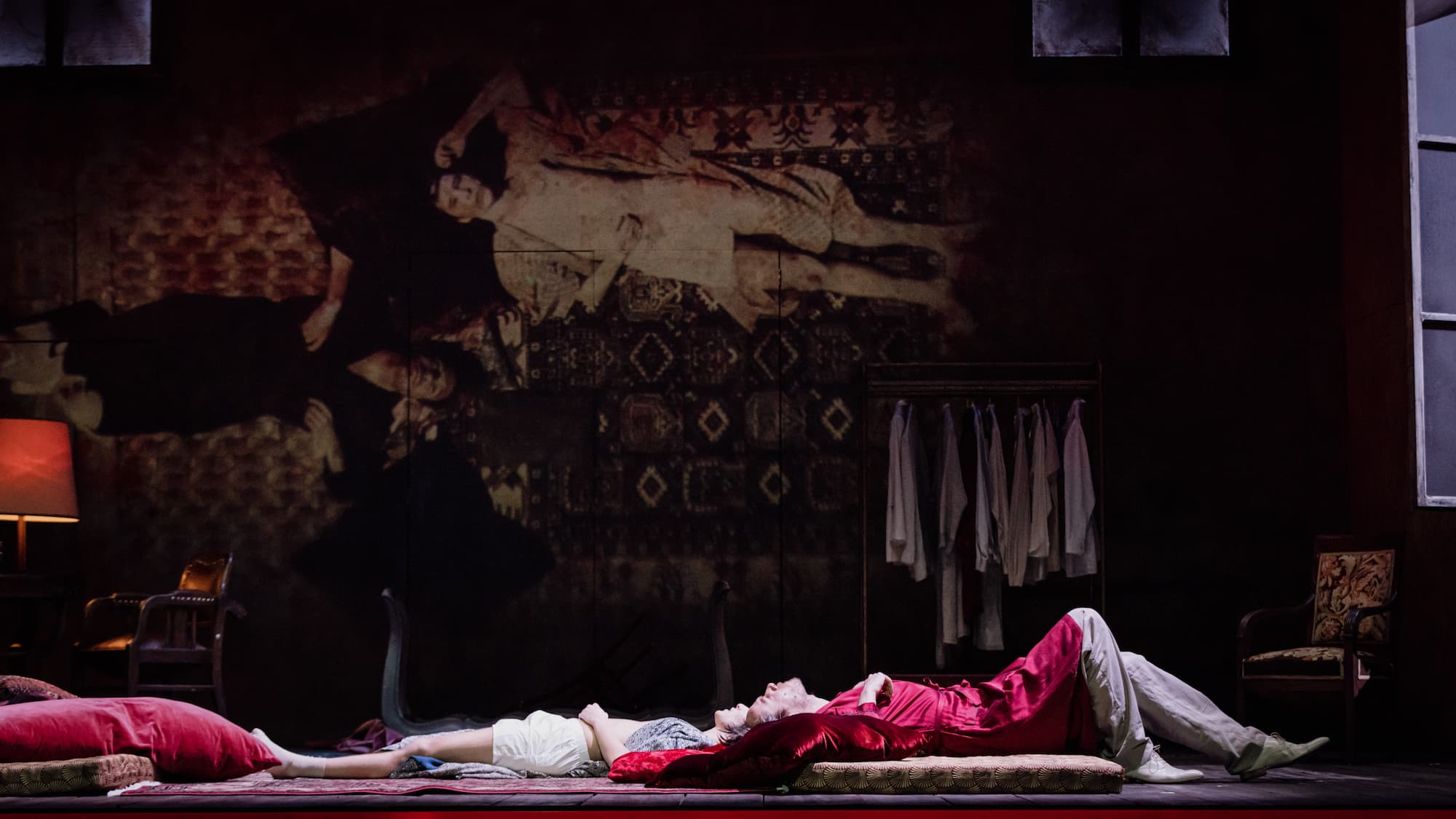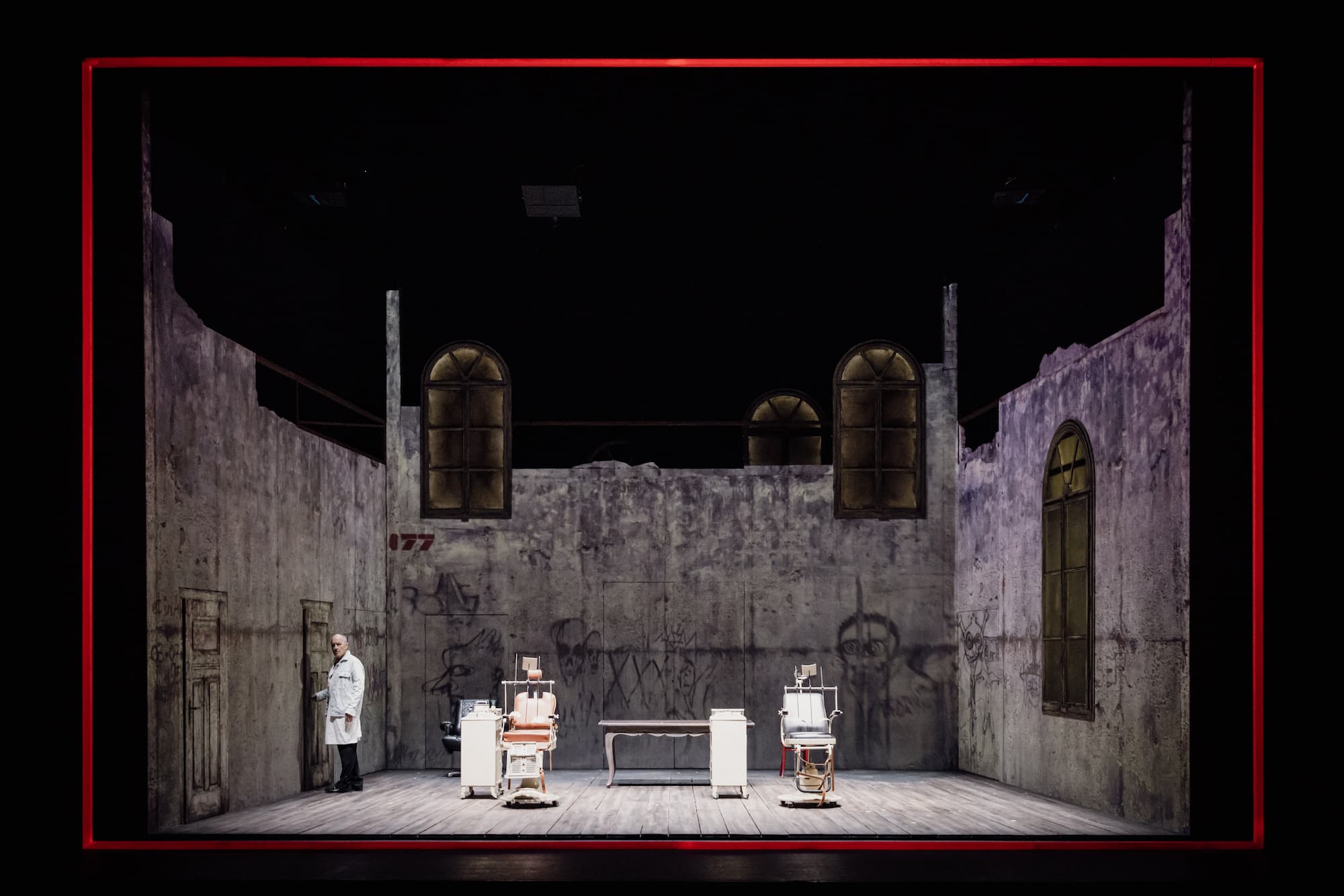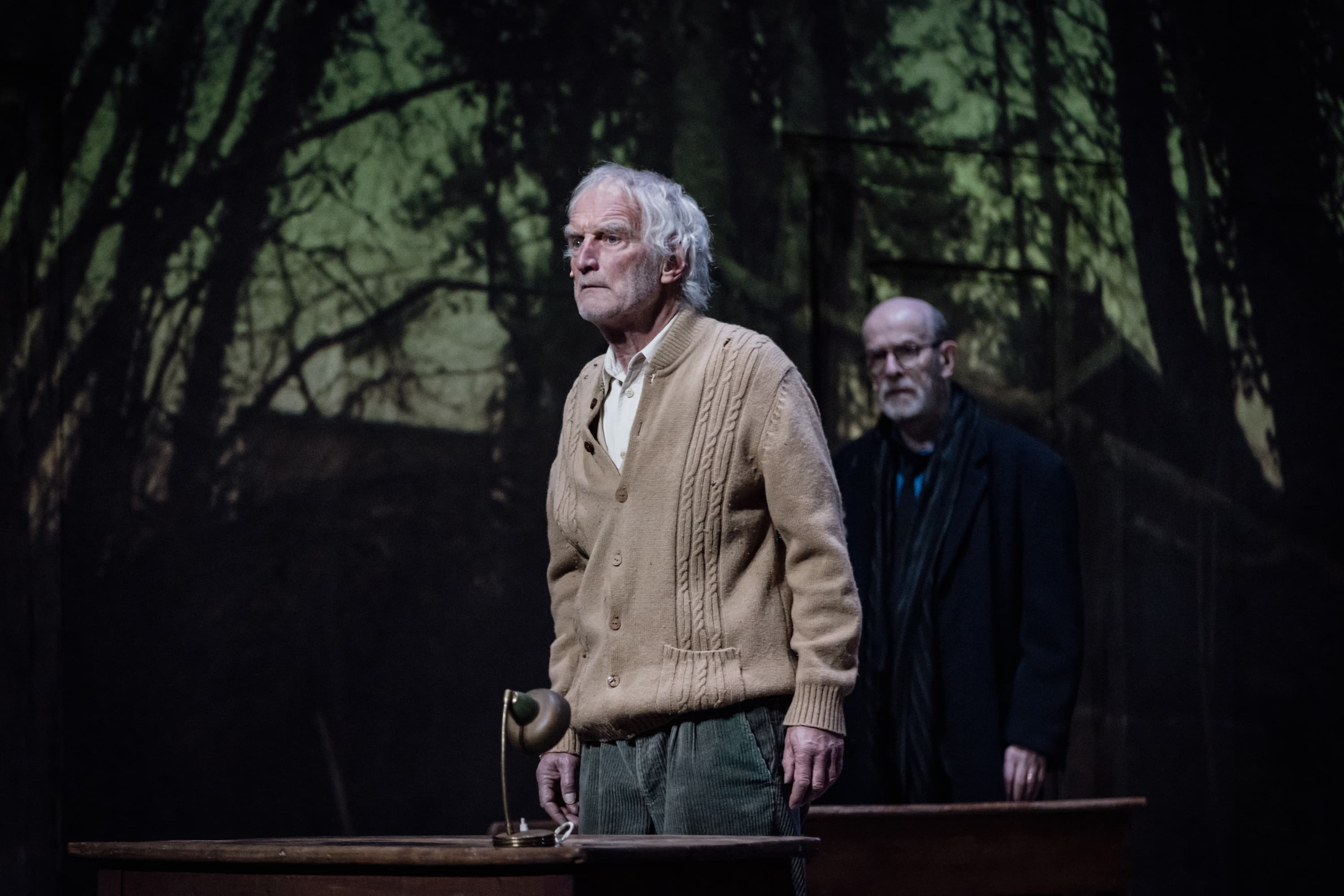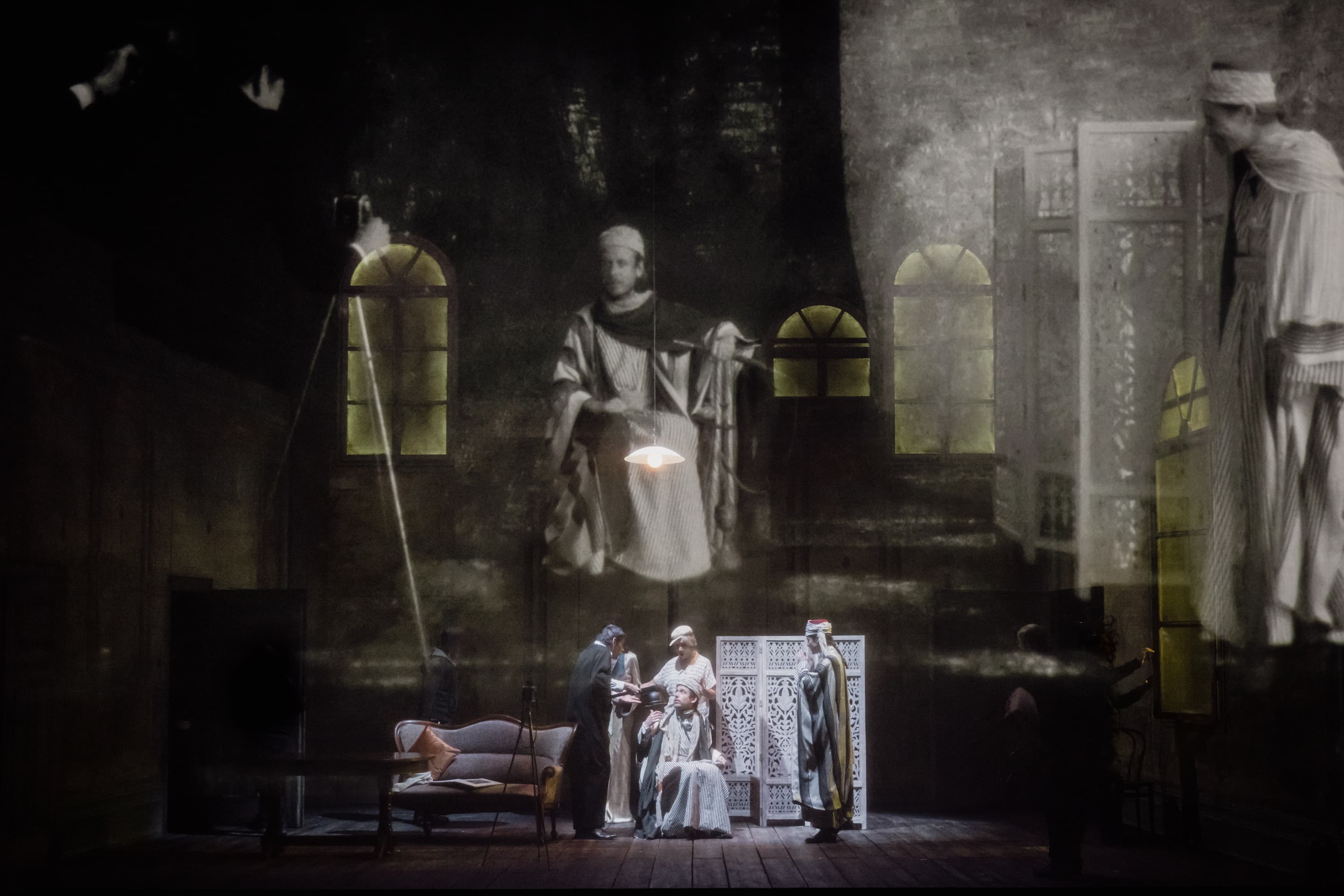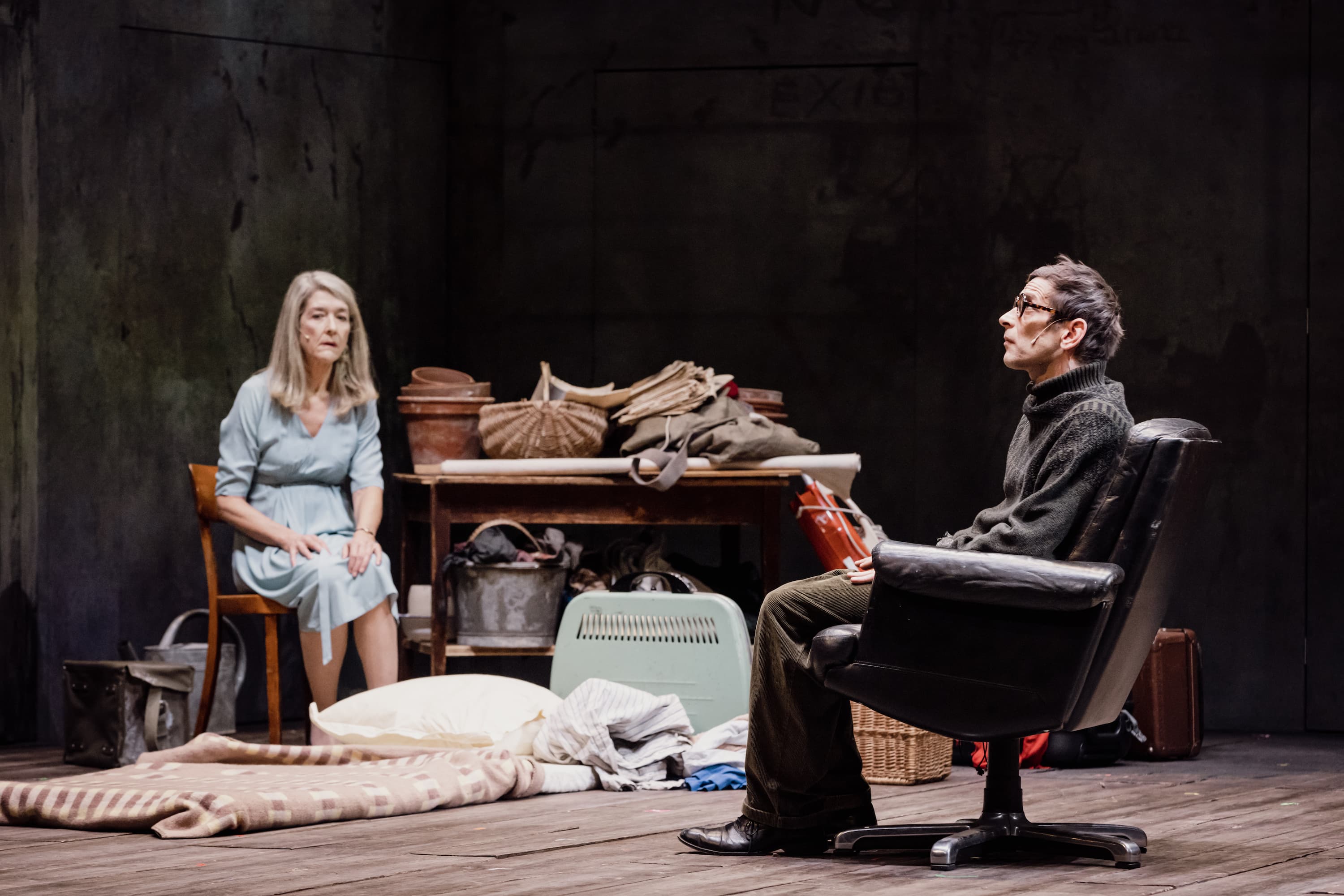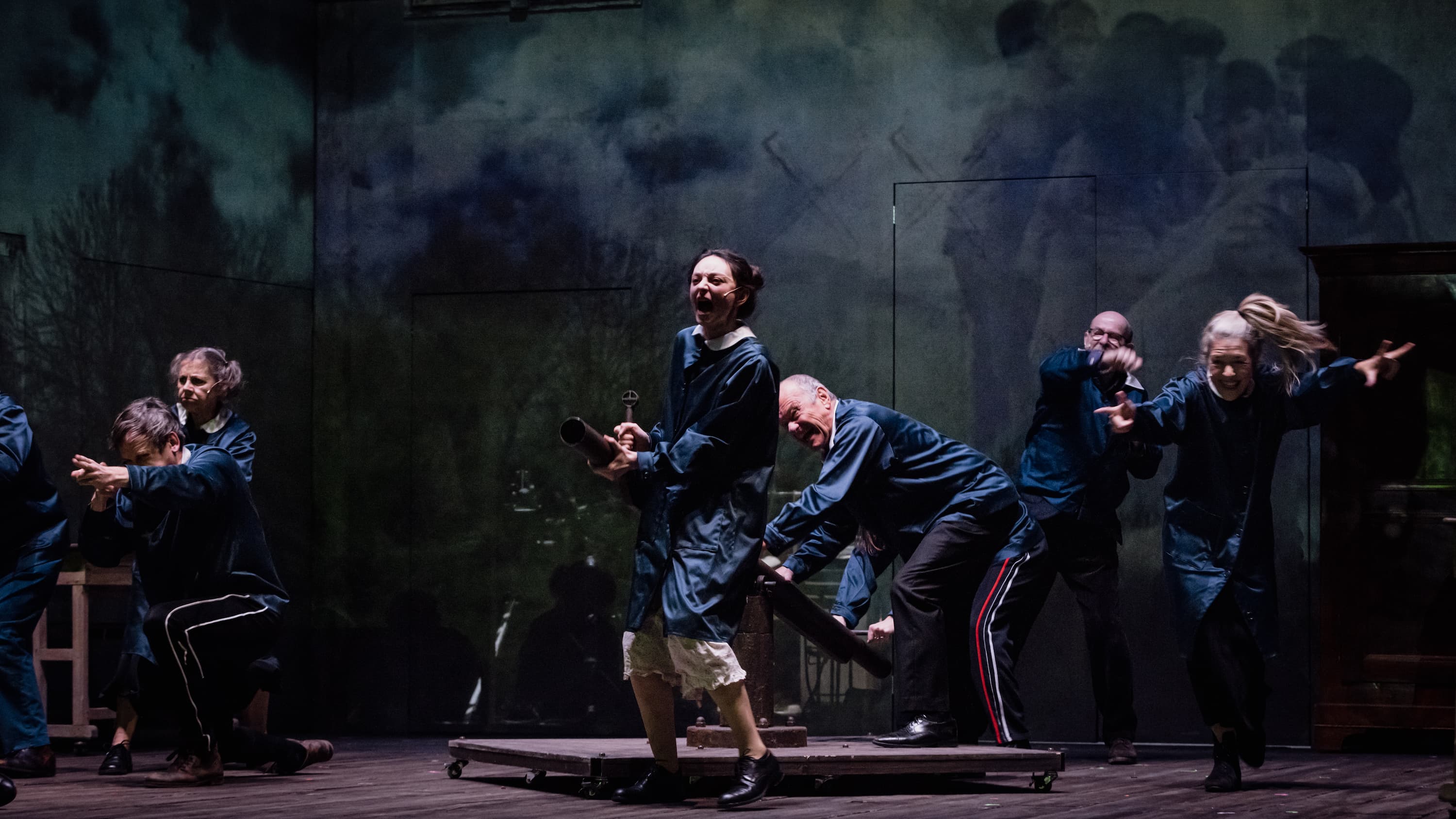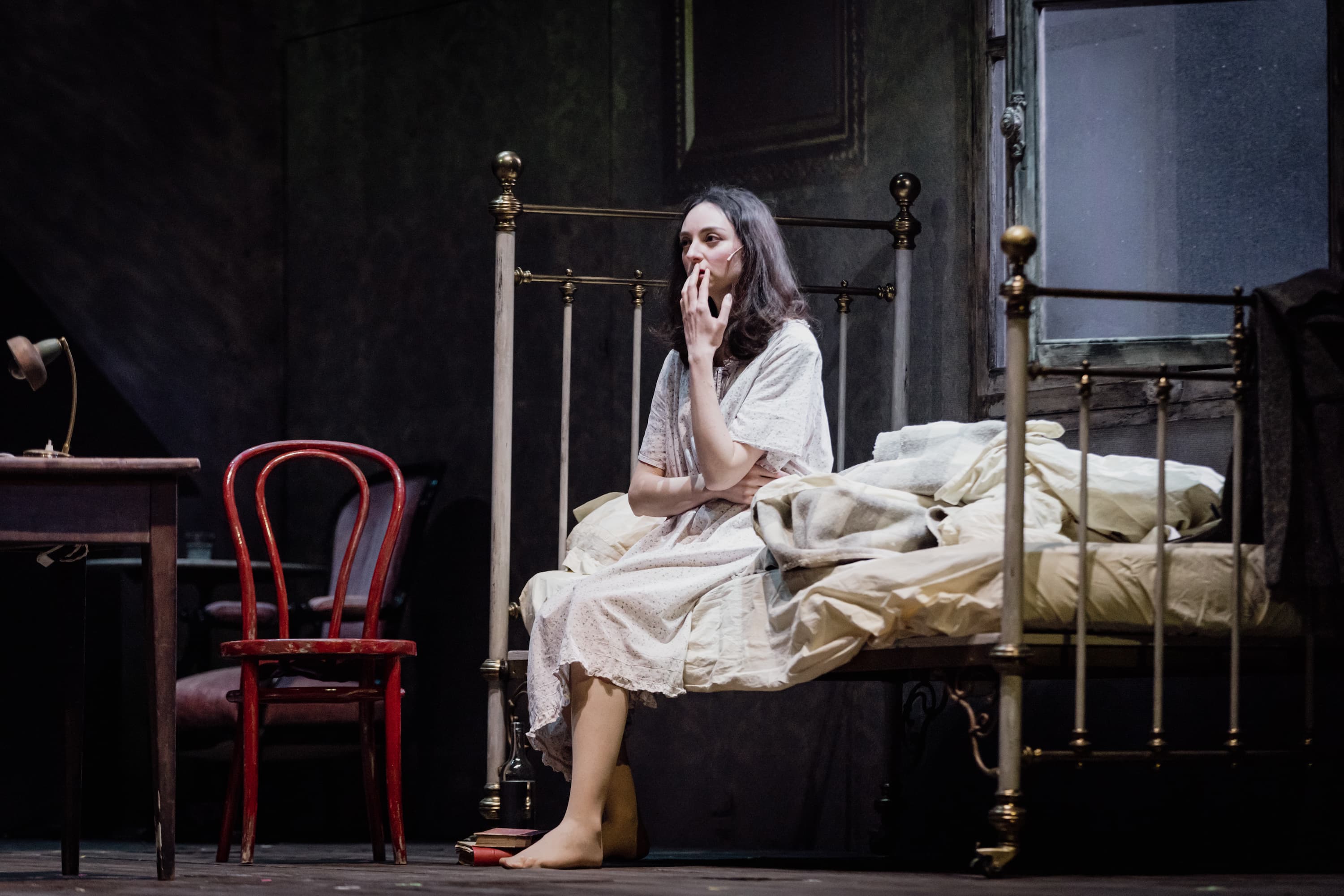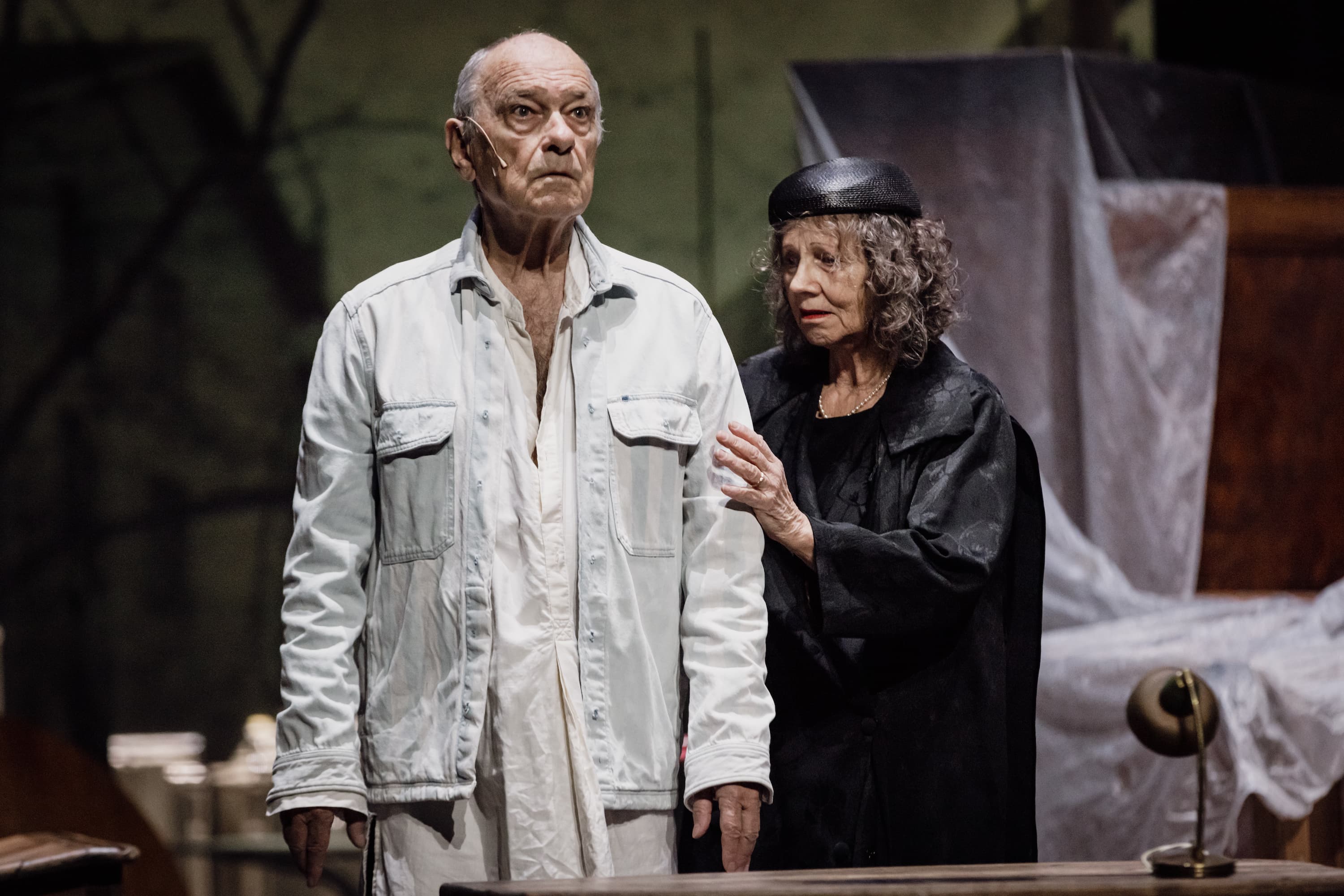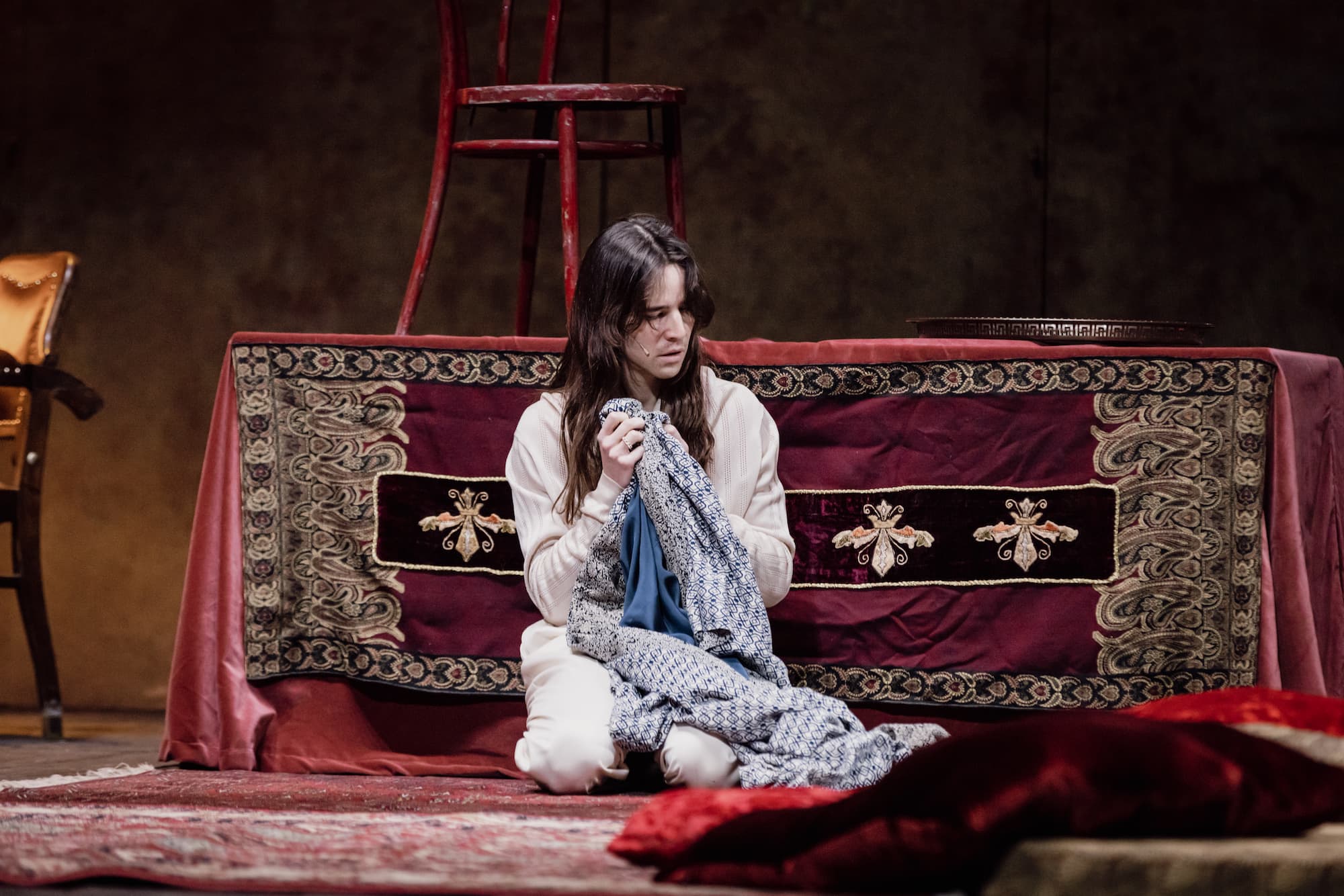with Pierre Banderet, Monica Budde, Pierre-François Garel, Aurélien Gschwind, Jacques Michel, Mélodie Richard, Laurence Rochaix, Manuel Vallade, Philippe Vuilleumier
After having directed Broch, Musil, Bernhard, and Kafka, Krystian Lupa engages with W. G. Sebald’s The Emigrants. In this hypnotic tale at a crossroads between fiction and documentary, the German author recreates the life of four men he has known, and who have all gone through exile and been permanently affected by it. Their intimate reverie, that unfolds in a text akin to a long prose poem; the stretching of time, that becomes a palpable duration; the unique density of his writing: everything, in Sebald’s work, resonates with Lupa’s universe and his work with his actors, based on conjuring their inner landscapes. For the Polish director, setting on stage two of these migrants’ portraits is a way to remind us of “the human being’s destructive power" — that which forces beings to be banished, to lose their "spiritual homeland" entirely. Inspired by the spectral photographies that pervade Sebald’s story, he conjures up onstage, through the actors, unspeakable ruptures. And he creates dazzling crossing points between the actors’ carnal, concrete presence, and the work’s mysterious depth.
Following the cancellation of the show at the Comédie de Genève and the Avignon Festival, performances of Les Emigrants [ The Emigrants ] have finally been maintained at the Odéon. A protocol has been agreed with the director, the actors and all the theatre's teams, to enable this production to go ahead. The management will pay particular attention to the smooth running of rehearsals. The operating schedule has been modified in order to finalise this show.
Cast
based on the stories "Paul Bereyter" and "Ambros Adelwarth" in The Emigrants by W. G. Sebald
written, adapted, directed, set design, lighting Krystian Lupa
collaboration, assistant, translation from Polish into French Agnieszka Zgieb
musical creation Bogumił Misala
video creation Natan Berkowicz
costumes Piotr Skiba
director of photography Nikodem Marek
assistant director and dramaturg Maksym Teteruk
trainee assistant director Juliette Mouteau
assistant director Jean-Laurent Chautems
video assistant Stanislaw Paweł Zieliński
lighting assistant Arnaud Viala
set design and props assistant Terence Prout
assistant costumes Karine Dubois
set construction Ateliers de la Comédie de Genève
and the technical team of the Odéon-Théâtre de l'Europe
production Comédie de Genève
coproduction Festival d'Avignon, Odéon-Théâtre de l'Europe, Triennale de Milan, Maillon - Théâtre de Strasbourg scène européenne
the rights to the theatrical adaptation of W. G. Sebald are represented by The Wylie Agency (UK) Ltd.
creation in January 2024
Biography of Krystian Lupa
Krystian Lupa was born in 1943 in Jastrzębie Zdrój, Poland. After studying at the Academy of Fine Arts in Kraków and the Łodź Film School he entered the National Theatre School in Kraków where he studied directing. His theatrical career began in 1976. After working at the Theatre of Jelenia Góra, he collaborated with Teatr Stary in Kraków, Teatr Dramatyczny in Warsaw and Teatr Polski in Wrocław, while teaching since 1983 at the faculty of directing at The National Theatre College in Kraków. Influenced by Tadeusz Kantor (his "master", along with the filmmaker Andrei Tarkovski) and a great reader of Jung, he developed his conception of theatre as an instrument for exploring and transgressing the boundaries of individuality (set out in a text entitled The Theatre of Revelation). He first staged the great Polish playwrights of the 20th century: Witkiewicz (Les Mignons et les Guenons, 1977), Gombrowicz (Yvonne, Princesse de Bourgogne, 1978, Le Mariage, 1984), Wyspianski (Le Retour d'Ulysse, 1981), and conceived two shows in their entirety: La Chambre transparente (1979) and Le Dîner (1980). In 1985, he created City of Dreams at the Stary Teatr based on Alfred Kubin's novel (The Other Side). In addition to directing dramatic works, Chekhov (The Three Sisters, Festival d'Automne, 1988), Reza (Art, 1997), Schwab (The Presidents, 1999), Loher (Claire's Relationships, 2003), fictional literature, particularly Austrian, became his favourite material. He adapted and directed Musil (The Dreamers, 1988), Dostoyevsky (The Brothers Karamazov, 1990), Rilke (Malta or the Triptych of the Prodigal Son, 1991), Bernhard (Kalkwerk/La Plâtrière, 1992; Emmanuel Kant et Déjeuner chez Wittgenstein, 1996; Auslöschung-Extinction, 2001), Broch (Les Somnambules, 1995, Festival d'Automne à Paris, 1998), Bulgakov (Le Maître et Marguerite, 2002), Nietzsche and E. Schleef (Zarathustra, 2006).
Krystian Lupa is a leading figure on the contemporary European stage and a Polish director, author, set designer and lighting designer. Inspired by the director Tadeusz Kantor and the filmmaker Andrei Tarkovsky, his theatre places the actor's work at the centre of the creative process. In a tension between the figurative and the unreal, the concrete and the mental, it is marked by a troubled realism, as if perceived through the shades of the imaginary and the unconscious.
As a complete theatre maker, he has established himself as a designer of adaptations, a visual artist (he himself designs the sets and lighting for his shows) and a director of actors (known for his long preparatory work with the actors on the construction of the characters). His shows are also marked by a singular work on rhythm, slowed down time in the unfolding of the stage action, often concentrated around moments of crisis.
His work has received numerous awards, including the Europe Prize for Theatre (2009). Following Factory 2, he created Persona Marilyn and Le corps de Simone (two parts of a project based on the figures of Marilyn Monroe and Simone Weil); Salle d'attente, based on Norén's Category 3.1 (2011). By Thomas Bernhard, he adapted Perturbation (2013), Des arbres à abattre (2014) and Place des héros (2015).
At the Odéon:
- Les Somnambules by Hermann Broch, 1998
- The Brothers Karamazov by Dostoyevsky, 2000
- Auslöschung / Extinction based from Thomas Bernhard, 2002
- Mistrz i Malgorzata [The Master and Margarita], by Bulgakov, 2003
- Rodzenstwo: Ritter, Dene, Voss [Lunch at Wittgenstein] by Thomas Bernhard, 2004
- Zaratustra, based from Friedrich Nietzsche's Thus Spoke Zarathustra and Nietzsche. Trilogy by Einar Schleef, 2007
- Wycinka Holzfällen [Trees to cut down], by Thomas Bernhard, 2016
- Proces [The Trial], based from Franz Kafka, 2018
- The Emigrants, based from W. G. Sebald, 2024
Practical Information
estimated duration 4h (with intermission)
Tuesday to Saturday at 7.30pm, Sunday at 3pm
no performances on Mondays
Performances with English surtitles on 13, 20, 27 January and 3 February
Around the performance
Previews on 9 and 10 January
Happy Thursday on 18 and 25 January and 1 February


